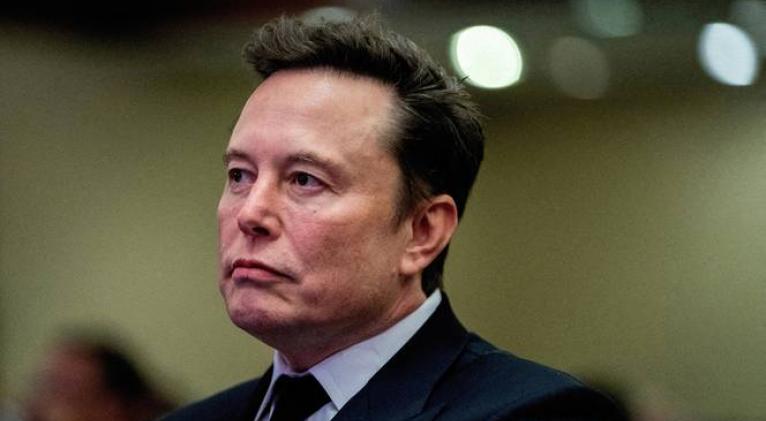X factor: Is Musk using his platform to undermine European democracy?
especiales

In a startling display of digital-age political maneuvering, Elon Musk, the tech mogul behind X (formerly Twitter), recently hosted a conversation with Alice Weidel, the co-leader of Germany's far-right Alternative for Germany (AfD) party.
This seemingly innocuous chat has sent shockwaves through the German political landscape, raising alarm bells about foreign interference and the erosion of democratic norms.
What transpired was not a robust political debate, but rather a troubling echo chamber of unchallenged falsehoods.
Weidel, with Musk's tacit approval and active contribution, spread a litany of misinformation about immigration, Adolf Hitler and the AfD party itself, which is classified as a suspected right-wing extremist organisation by Germany's domestic intelligence agency.
Musk's support for the AfD is not an isolated case, but an example of his growing involvement in European political affairs. His actions have extended beyond Germany:
In France, President Emmanuel Macron accused Musk of backing a "new international reactionary movement." In Italy, Musk has engaged in discussions with Prime Minister Giorgia Meloni, offering support for her anti-immigration stance.
In Britain, which is no longer a member of the European Union, Musk asked Prime Minister Keir Starmer to step down and showed UK Independence Party leader Nigel Farage how quickly his personal support could end.
Financial motivations
As the owner of multiple businesses, Musk has a fiscal motivation to meddle in European politics. For example, he has consistently railed against the Digital Services Act (DSA), which can be considered a landmark EU regulation aimed at creating a safer and more transparent digital environment.
The DSA aims to fundamentally reshape the digital landscape in Europe, ensuring that what is illegal offline is also treated as illegal online, while preserving the core principles of the internet's functioning.
Such regulations require online moderation, which is labour-intensive and costly, constraining the business model of many online businesses, including X. It is also against the libertarian thinking of a man who believes in disruption.
Musk has misrepresented the DSA by framing it as a threat to free speech.
Musk is also motivated to meddle because a weaker Europe is not only in his interest as a business owner, but also jives with the new US administration's philosophy towards the EU and its members.
Previous US presidents saw Europe as a partner and reaped the benefits of diplomacy, multilateralism and collective security. Trump as a dealmaker however is focused on maximising his short-term interest through a pressure campaign.
If the EU is strong and united, it is more difficult for him to win market access, erode protectionism, and evade regulations or fines for US companies that violate EU competition law.
Lack of consequences
Several factors have emboldened Musk's interference in European politics. Firstly, Musk is no longer the only one speaking out against moderation of content on social media.
Mark Zuckerberg, CEO of Meta, recently announced plans to end fact-checking on Facebook and Instagram, opening up new avenues for misinformation to proliferate online.
Zuckerbeg acknowledged that the move was in part due to incoming US President Donald Trump's administration. Trump has previously criticised Facebook content moderation as censorship.

Secondly, Musk sees that despite investigations into potential violations of the EU Digital Services Act, concrete penalties have been slow to materialise. Additionally, X's unique position in the social media landscape gives Musk significant leverage, even as some institutions leave the platform.
One other factor facilitating Musk's involvement in Europe is political polarisation, as the rise of populist movements across the continent has provided fertile ground for his disruptive messaging.
As Musk continues to leverage his platform and personal brand to influence European politics, it's becoming increasingly crucial for EU authorities and civil society to develop effective strategies to counter this form of digital interference in democratic processes.
Indeed, in Germany Musk's talk with Weidel sparked a wave of criticism from the political establishment. Green Party Chancellor candidate Robert Habeck declared, "Hands off our democracy, Mr. Musk," while Chancellor Olaf Scholz dismissed Musk's involvement with the quip, "Don't feed the troll."
However, not all reactions were negative. Liberal backbencher Wolfgang Kubicki viewed the event as an example of free speech in action.
Meanwhile, 60 German and Austrian universities, two major labour unions, and even the German Constitutional Court have announced their departure from X. This mass exodus underscores the growing unease with Musk's platform and its role in amplifying extremist voices and allowing hate speech.
Legal and ethical concerns
While the content of the Musk-Weidel conversation was troubling, the real threat lies in X's algorithmic amplification. Data shows that Weidel's posts suddenly reached 1 million impressions in recent weeks, up from an average of 200,000.
This artificial boosting of political content is nothing short of external manipulation of the German electoral process. As total campaign spending by all parties combined is just €70 million, such technological interference could significantly alter election outcomes.
The German Bundestag is now investigating whether the conversation constitutes illegal foreign campaign support. If other parties would have to pay significant sums for similar reach on social media, the event could be deemed unfair and illegal.
The European Commission has also included the livestream in an ongoing investigation into potential violations of the EU's Digital Services Act. X is already under scrutiny, and in the worst case, fines for such violations could reach billions of euros.
This is a high risk even for global tech giants like X that act as if they can operate beyond national or supranational legislation.
Wake-up call
The Musk-Weidel conversation was more than just a trivial spectacle. It highlighted the dangers of unchecked disinformation, the power of social media to manipulate public opinion, and the fragility of democratic institutions in the face of far-right extremism.
As Germany heads into snap elections on February 23rd, the stakes could not be higher. The question is not just who will win, but whether democracy itself can withstand the onslaught of disruption and chaos.
Meanwhile Austria is on the edge of getting the first right-wing Chancellor since World War II, Marine Le Pen could become the first right-wing president of France and the Netherlands voted into office Geert Wilders, a man who is openly racist and anti-Muslim.
In the words of Robert Habeck - the Green candidate for Germany's next Chancellor - it's time to say, "Hands off our democracy." The world is watching.














Add new comment